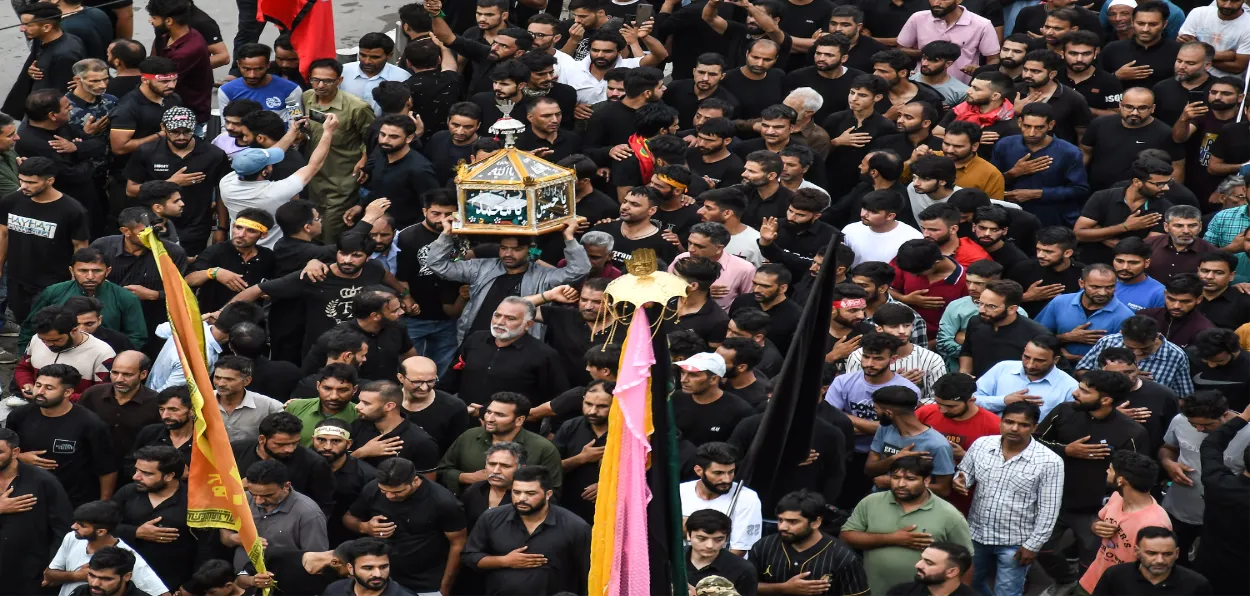
Eman Sakina
Muharram, the first month of the Islamic calendar, holds a profound significance for Muslims as a period of introspection and remembrance. Annually, on the 10th day of Muharram known as Ashura, Muslims globally commemorate the martyrdom of Husain ibn Ali, the grandson of Prophet Muhammad.
Prophet Mohammad brought the message of peace, tolerance, humanity, and brotherhood. The teachings of peace were largely opposed by a group of mischief-mongers called Bani Ummaya.
The worst and deadliest of Ummayyad’s group was Yazid, son of Muaviya who was a heartless brute at the extreme of terrorism. After forcefully ascending the seat of the Caliphate in Syria, Yazid compelled homage from Imam Husain to subscribe to him as the commander and spiritual leader of the faithful. Imam Husain, a man par excellence, refused to subscribe to Yazid as the caliph of Islam.
Husain was assassinated along with 71 family members and companions after being kept hungry and thirsty for three days on the 10th of Moharram. In this battle between truth and falsehood, Hazrat Imam Hussain’s 72 devoted companions stood ready to face the 4,000-strong army in front of them. One by one, these brave and courageous warriors received a blessing from Hazrat Imam Hussain and entered the battlefield. Exhausted from their long journey, parched with thirst, these lions fought fearlessly, displayed unyielding bravery, and were eventually martyred. Their heads including Husain’s six-month-old infant son, Ali Asghar, were severed from bodies and raised on lancers. Their bodies were trampled by horses. Ladies and children were made captives. Husain lost the battle yet won the campaign. Hazrat Imam Hussain did not want to do the bai’at [a pledge of allegiance] at the hands of a transgressor; otherwise, it would have discredited the religion.
There are various other ways in which Muslims can commemorate this significant event on the 10th of Muharram. They may engage in mourning rituals, such as reciting poetry and stories about Husain's death, or participate in special prayer services. During these services, some individuals may choose to beat their chests (maatam) as a symbol of remembrance for Imam Husain's martyrdom.
No matter how it is observed, Ashura is a very important day for Muslims all around the world. It serves as a reminder that no one should have to go through the pain Husain did in Karbala and that everyone should try to follow his lead by resisting oppression and injustice wherever it may appear in our modern society.
Moharram is observed with congregational gatherings throughout the month of Muharram, particularly from the 7th to the 10th of Muharram. Depending on the part of the world, this also includes street processions and city-wide closures observing the mourning of Imam Hussain. Individually, Shia families might observe the mourning in ways such as not having joyous occasions as part of Muharram’s mourning period.
